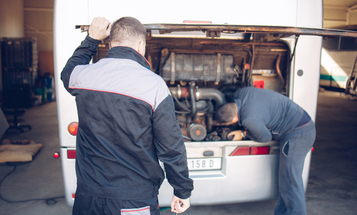
Hyatt: Worst Hotel Employer in America?
Work as a hotel housekeeper isn’t an easy job under any circumstances. For more than 400,000 predominantly female and immigrant workers, the work means lifting heavy mattresses, stretching to clean high surfaces, and often scrubbing bathroom floors on hands and knees. Full-time workers earn just $21,000 a year, on average. But at one of the nation’s large hotel chains, conditions are appreciably worse than elsewhere in the industry according to the hotel employees’ union, UNITE HERE. The union argues that Hyatt has singled itself out as the worst employer in the hotel industry. They are calling for a nationwide boycott of Hyatt properties and appealing to supporters to "vote Hyatt worst."
In addition to a substantial rate of occupational injuries, exacerbated by a requirement that some housekeepers clean as many as 30 rooms a day, the union also notes that Hyatt stands out for its aggressive use of subcontractors. In a particularly egregious case in 2009, Hyatt laid off long-time employees at hotels in Boston and permanently replaced them with even lower wage temporary workers. The New York Times reported that the laid-off housekeepers earned $14 to $16 an hour with health benefits, while the temp agency replacements were offered $8 an hour without health benefits.
Massachusetts’ governor denounced Hyatt’s move as “the worst nightmare of every worker in today’s weak economy.” The company, which declared $1.8 billion in gross profit in 2009 and $2.2 billion in 2011, countered that it faced “unprecedented economic challenges.” Accordingly, outsourcing has continued at Hyatt hotels across the country.
The systematic downgrading of the workforce – cutting wages, slashing benefits and reducing responsibility for employees even at profitable companies and in sectors like hotel work, where the labor cannot be sent overseas – can start to look inevitable. Yet, as Robert Kuttner detailed in the American Prospect last year, a different path, including good jobs and stable employment in the hotel industry, is viable and working in a strong union town like New York. His article suggests that when workers are able to organize and push back against low pay and mistreatment, good jobs can prevail. Given a strong union, employment in traditionally low-wage service sector positions can contribute to a stable middle class.
As Hyatt housekeeper Cathy Youngblood asserts, “I don’t mind working hard, but I won’t be abused.” UNITE HERE’s Hyatt campaign is an effort to push back against one particularly abusive employer. But it’s also an attempt at building the power of working people to demand more from profitable corporations bent on giving them less and less. As it kicks off a global boycott and national week of action, the union asks supporters to vote Hyatt the worst hotel employer in America and share their call for support.



